 |  |  |
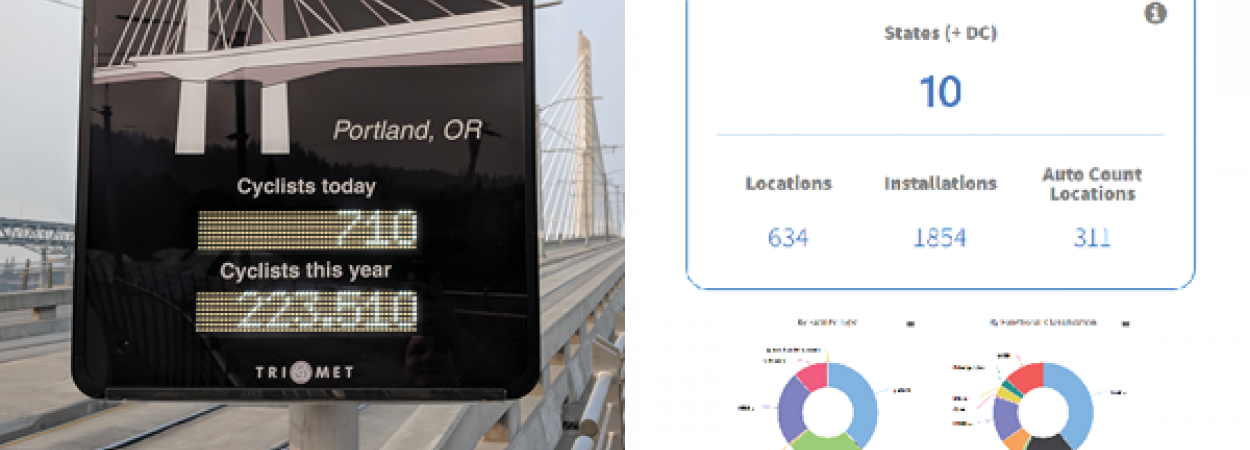
A national non-motorized count data archive, BikePed Portal provides a centralized standard count database for public agencies, researchers, educators, and other curious members of the public to view and download bicycle and pedestrian count data. It includes automated and manual counts from across the country, and supports screenline and turning movement counts.
BikePed Portal was established in 2015 by Transportation Research and Education Center (TREC) researchers at Portland State University through a pooled fund grant administered by the National Institute for Transportation and Communities (NITC). Other project partners include the Federal Highway Administration, Oregon Department of Transportation, Metro, Lane Council of Governments, Central Lane MPO, Bend MPO, Mid Willamette Valley Council of Gov…
Read More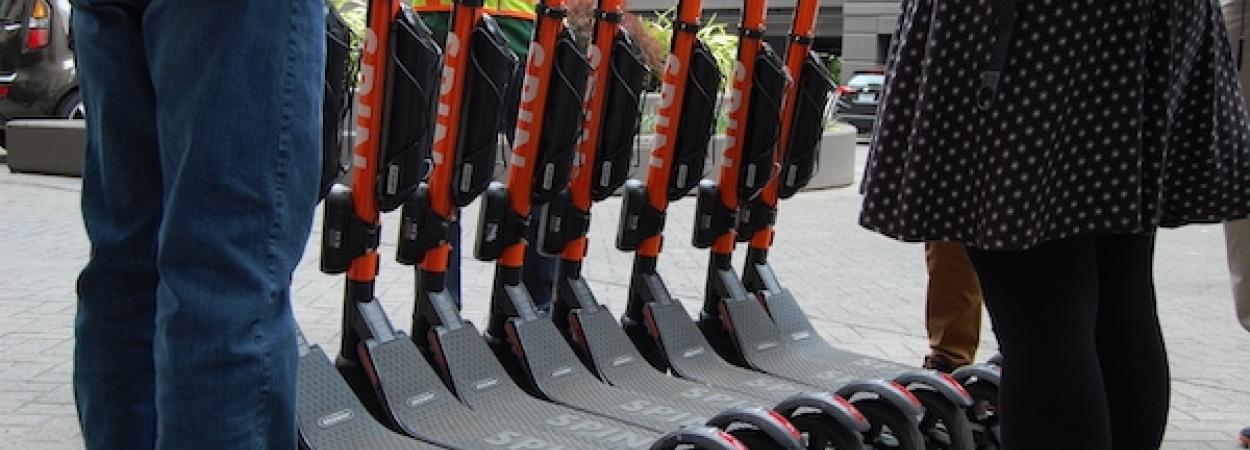
A new paper in the Journal of Planning Literature by Michael McQueen, Gabriella Abou-Zeid, John MacArthur and Kelly Clifton of PSU took a look at micromobility. The article focuses on the role of new modes like shared e-scooters in the efforts to cultivate a more sustainable transportation system by reducing greenhouse gas emissions, providing a reliable and equitable transportation service, and enhancing the human experience. Their review of the literature shows that the sustainability impacts of these modes are at present mixed, and are likely to remain so without more targeted interventions by local stakeholders. Yet, the operations and use of micromobility systems are quickly evolving and hold promise for contributing to a more sustainable transportation system.
Read the online journal article, or access the…
Read More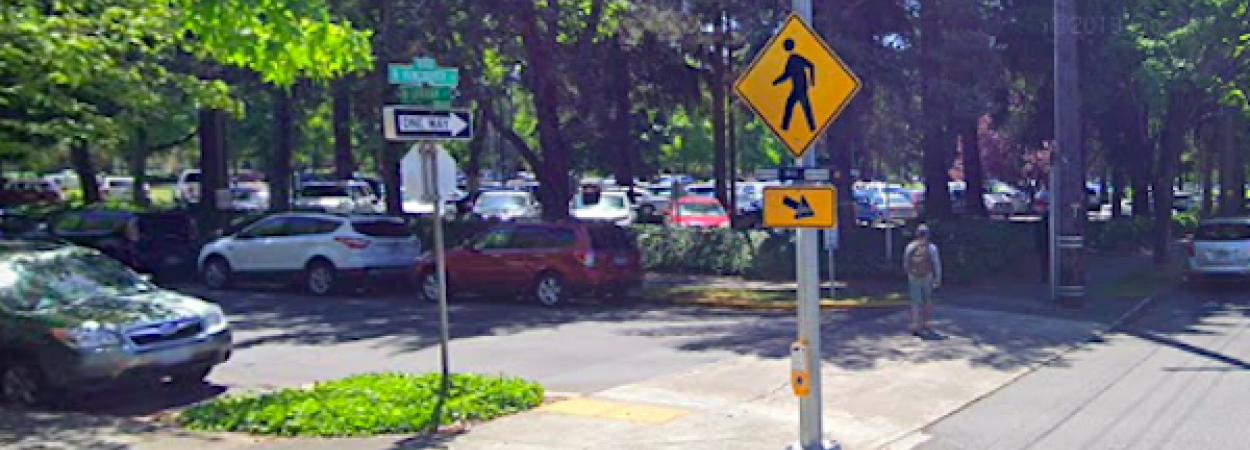
Chris Monsere, Sirisha Kothuri and Jason Anderson of Portland State University developed guidance for the Oregon Department of Transportation (ODOT) regarding the placement of Rectangular Rapid Flash Beacons, or RRFB's, in combination with median refuges on three-lane roadways. Their research explored the effect of these crossings on driver yielding behavior. For roads with volumes higher than 12,000 average daily traffic (ADT), they found high yielding rates at pedestrian crossings that had a beacon, whether or not there was a median. This demonstrates that the RRFB is a useful tool for alerting drivers to the presence of pedestrians at crosswalks. The researchers also found that for roadways with less than 12,000 ADT, the addition of a median refuge increases driver yielding.
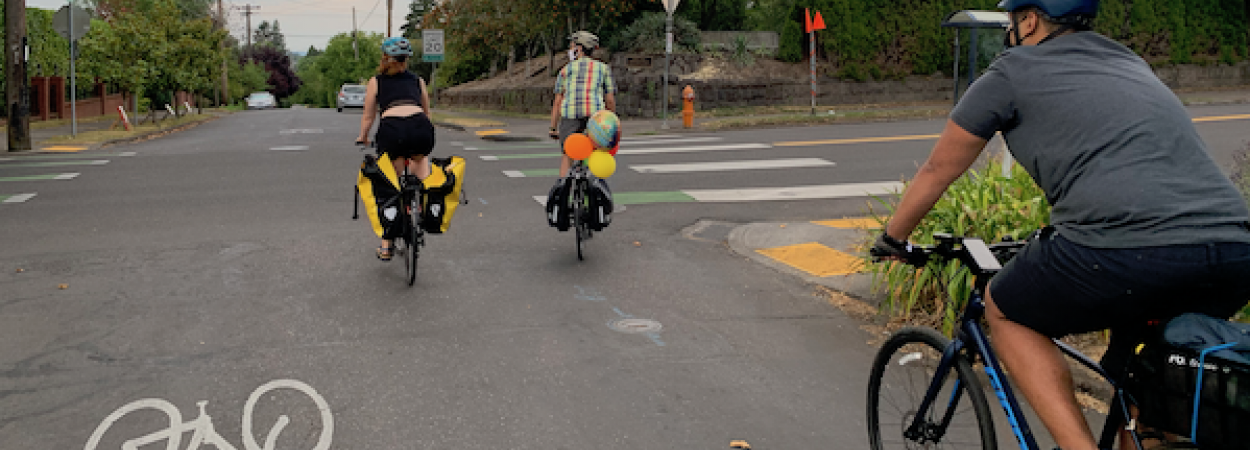
The Impacts of the Bicycle Network on Bicycling Activity: A Longitudinal Multi-City Approach
Wei Shi, Portland State University
In active transportation research, plenty of attention has been given to how different types of bike infrastructure affect people's likelihood of biking. Research has demonstrated that protected bike lanes encourage more people to bike than simple painted lanes, and that most cyclists feel…
Read More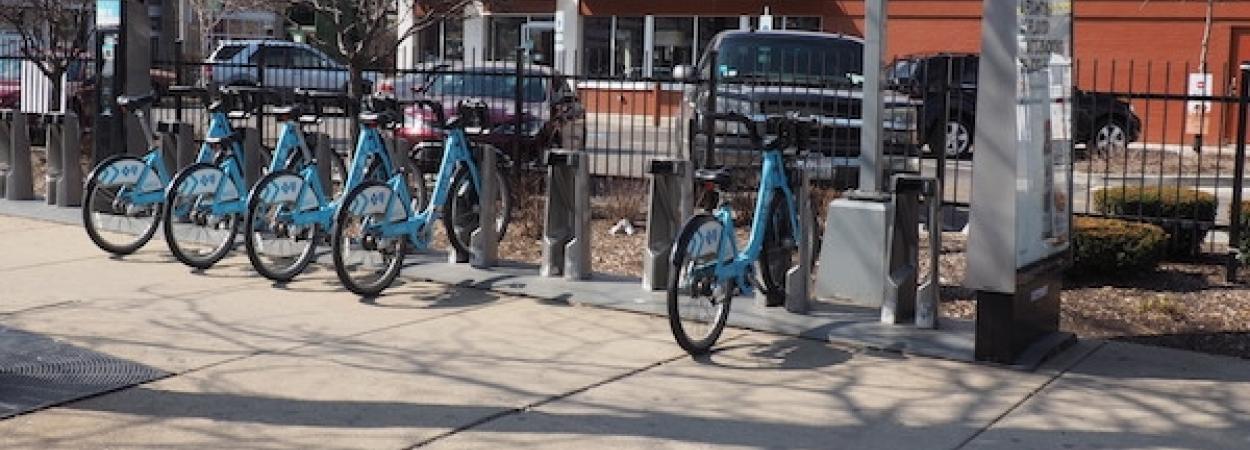
A review of equity and vehicle sharing, by Jennifer Dill and Nathan McNeil of PSU, appears this month in a special issue of the Journal of Planning Literature (click here for access to a free author's edition). They investigated whether shared vehicle systems – carsharing, bikesharing, and e-scooter sharing – are equitable. Overall, they did not find much evidence that they are improving accessibility for disadvantaged populations. Equity programs in carsharing are notably understudied. Given that many cities lack safe bicycle infrastructure and trip distances can be long, there may be more immediate potential for improving accessibility through carsha…
Read More